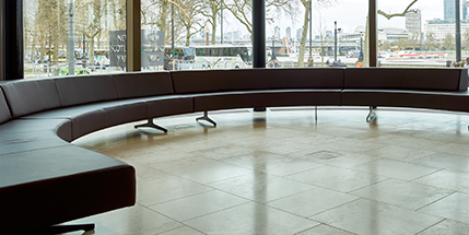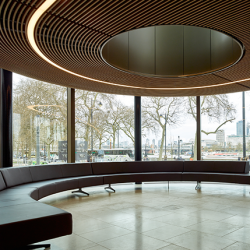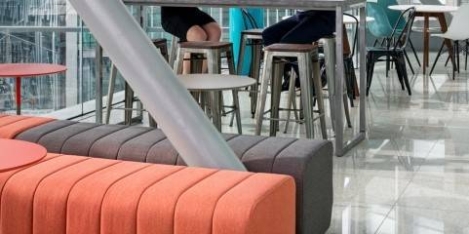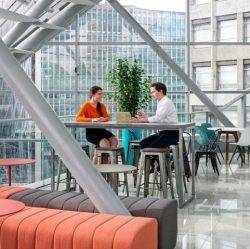To provide the best experiences, we use technologies like cookies to store and/or access device information. Consenting to these technologies will allow us to process data such as browsing behaviour or unique IDs on this site. Not consenting or withdrawing consent, may adversely affect certain features and functions.
The technical storage or access is strictly necessary for the legitimate purpose of enabling the use of a specific service explicitly requested by the subscriber or user, or for the sole purpose of carrying out the transmission of a communication over an electronic communications network.
The technical storage or access is necessary for the legitimate purpose of storing preferences that are not requested by the subscriber or user.
The technical storage or access that is used exclusively for statistical purposes.
The technical storage or access that is used exclusively for anonymous statistical purposes. Without a subpoena, voluntary compliance on the part of your Internet Service Provider, or additional records from a third party, information stored or retrieved for this purpose alone cannot usually be used to identify you.
The technical storage or access is required to create user profiles to send advertising, or to track the user on a website or across several websites for similar marketing purposes.
 A Google engineer has created a religion which will have an artificial intelligence as its God
A Google engineer has created a religion which will have an artificial intelligence as its God





















 UK workers are largely optimistic about the impact automation will have in the workplace, with three in four believing it will give them more time to concentrate on their primary job duties and work more flexibly, claims new research. Workfront’s annual State of Enterprise Work report, which aims to capture not only how work is being done and what challenges office workers see in the present, but also how they see current workplace trends playing out in the near future reveals that 84 percent agreed with the sentiment that “the use of automation in the workplace will let us think of work in new and innovative ways.” 82 percent expressed excitement at the chance “to learn new things as the workforce moves toward more automation;” and while the overwhelming view on automation was positive, around 2 in 5 (38 percent) feared that rising automation will place humans and robots in competition for the same jobs in the future.
UK workers are largely optimistic about the impact automation will have in the workplace, with three in four believing it will give them more time to concentrate on their primary job duties and work more flexibly, claims new research. Workfront’s annual State of Enterprise Work report, which aims to capture not only how work is being done and what challenges office workers see in the present, but also how they see current workplace trends playing out in the near future reveals that 84 percent agreed with the sentiment that “the use of automation in the workplace will let us think of work in new and innovative ways.” 82 percent expressed excitement at the chance “to learn new things as the workforce moves toward more automation;” and while the overwhelming view on automation was positive, around 2 in 5 (38 percent) feared that rising automation will place humans and robots in competition for the same jobs in the future.










October 9, 2017
Our Twentieth Century approach to ergonomics has to change
by Mark Eltringham • Comment, Flexible working, Technology, Wellbeing, Workplace design
More →